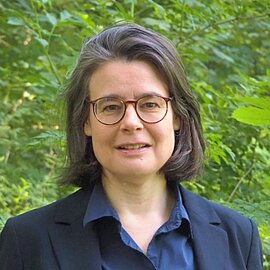Within the joint seminar series of IAMO and “Institute of Agricultural and Food Science” at the Martin Luther University Halle-Wittenberg, Germany, Barry Goodwin presented his paper “Has Technology Increased Yield Risk? Evidence From the Crop Insurance Biotech Endorsement”, co-authored by Nick Piggott. The study contributes to the ongoing debate on the effects of technological improvements on yield risk. Controversial opinions exist whether technological advances in seed breeding and genetic modification of corn traits, which have increased average yields, lower yield risk or rather, raise agronomic risk. Increasing yield risk raise concerns regarding the stability and viability of agricultural output and with advancing climate change may threaten food supplies in the future.
The presented study evaluates corn yields and data from the US federal crop insurance program. As Barry explained in his talk, examination of yield responses to droughts in 1988 and 2012 suggests that although the drought conditions were comparable, the impacts on corn yields were substantially lower in the later period, when biotech corn hybrids were more widely used by farmers. In addition, the study also evaluated side-by-side data collected under the Biotech Endorsement (BE) to the federal crop insurance program between 2008 and 2011. This insurance program provided substantial discounts for farmers using certain genetically engineered corn hybrids. The study finds that yield risk -measured as indemnities paid per units insured- was significantly lower when farmers used those corn hybrids. Results also indicate that the difference in yield risk tends to be greater when growing conditions are less favorable and weather stresses rise.
Impacts of agronomic technology on yield risk
Barry Goodwin, William Neal Reynolds Distinguished Professor and Graduate Alumni Distinguished Professor at the Departments of Agricultural and Resource Economics and Economics, North Carolina State University, USA, gave a guest lecture at IAMO on 22 October 2019.

